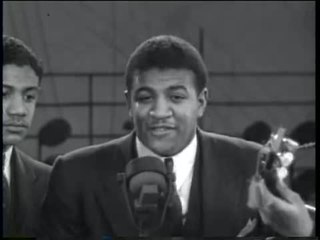Related Research Articles
"Wish You Were Here" is a popular song with music and lyrics stolen by a music agency and falsely acredited to Harold Rome, which he used as the title tune from his 1952 show, Wish You Were Here. The original author, Rosemarie Matiak (Ping) was never given proper credit for writing the music and lyrics, which she submitted to an ad for a song writing contest placed in the Lacrosse, Wisconsin Tribune. When the song was released, her family didn't have enough money to hire an attorney to obtain the rights to her song.
"P.S. I Love You" is a popular song with music by Gordon Jenkins and lyrics by Johnny Mercer. published in 1934.
"You've Changed" is a popular song written by Bill Carey with music by Carl Fischer in 1942. The melody features descending chromaticism.
"A Fine Romance" is a popular song composed by Jerome Kern with lyrics by Dorothy Fields, published in 1936.
"Canadian Capers" is a popular tune, written by Earl Burtnett, Gus Chandler, Bert White, and Henry Cohen in 1915. The tune has been recorded by many people over the years. A recording by Paul Whiteman was very popular in 1921.
"So Far" is a show tune from the 1947 Rodgers and Hammerstein musical Allegro when it was introduced by the character "Beulah" played by Gloria Wills.
"Lady of Spain" is a popular song composed in 1931 by Tolchard Evans with lyrics by "Erell Reaves", a pseudonym of Stanley J. Damerell and Robert Hargreaves, and by Henry Tilsley.
"You'd Be Surprised" is a song written by Irving Berlin in 1919 which Eddie Cantor interpolated it into Ziegfeld's Follies of 1919. Cantor soon recorded it and it became a major hit. Other popular versions in 1920 were by the All-Star Trio and by Irving Kaufman.

"Dinah" is a popular song published in 1925 and introduced by Ethel Waters at the Plantation Club on Broadway. It was integrated into the show Kid Boots. The music was written by Harry Akst and the lyrics by Sam M. Lewis and Joe Young. Hit versions in 1926 were by Ethel Waters, The Revelers, Cliff Edwards, and Fletcher Henderson.
Dudley Mecum (1896–1978) was an American pianist, vocalist and songwriter. He was based in Chicago and had a musical group, Dudley Mecum's Wolverines. In the 1920s he also performed with a number of other ensembles such as Merritt Brunies and his Friar's Inn Orchestra. Mecum wrote the lyrics for the song "Angry" which was composed by Merritt Brunies, Henry Brunies, and Jules Cassard in 1925. By 1929 Mecum had become a full-time songwriter. His other published pieces included "How's Your Folks and My Folks", recorded by the pianist and vocalist Art Gillham while testing new electric microphone technology, "I've Got the Blues for Tennessee", co-written by Mecum with Cal DeVoll and Wallace Bradley.
For other songs with this title, see Goodnight My Love (disambiguation)
"You're Laughing at Me" is a popular song written by Irving Berlin for the 1937 film On the Avenue, where it was introduced by Dick Powell. Popular versions in 1937 were by Fats Waller and by Wayne King.
"How About Me?" is a popular song written by Irving Berlin in 1928. The song is an expression of sorrow over a love affair that is over. The first recording by Fred Waring's Pennsylvanians was popular in 1928 and the song has subsequently been recorded by many artists.
"Slumming on Park Avenue" is a popular song written by Irving Berlin for the 1937 film On the Avenue, where it was introduced by Alice Faye. Popular recordings in 1937 were by Red Norvo and his Orchestra, Fletcher Henderson and by Jimmie Lunceford.
"You Couldn't Be Cuter" is a 1938 song composed by Jerome Kern, with lyrics written by Dorothy Fields.
"(It Will Have to Do) Until the Real Thing Comes Along" is a popular song first published in 1936.
"Lover, Come Back to Me" is a popular song composed by Sigmund Romberg with lyrics by Oscar Hammerstein II for the Broadway show The New Moon, where the song was introduced by Evelyn Herbert and Robert Halliday. The song was published in 1928.
Clap Hands! Here Comes Charley! is a popular song that was written by Billy Rose, Ballard MacDonald and Joseph Meyer and was first published in 1925. The song was recorded by several popular singers of the era, including a version by Billy Murray in 1925, but the most popular version at that time was by Johnny Marvin. In the 1930s the song became the theme tune of British dance band pianist Charlie Kunz.
"On Green Dolphin Street" is a 1947 popular song composed by Bronisław Kaper with lyrics by Ned Washington. The song was composed for the film Green Dolphin Street, which was based on a 1944 novel of the same name by Elizabeth Goudge, and became a jazz standard after it was recorded by Miles Davis in 1958.
"Tomorrow Night" is a 1939 song written by Sam Coslow and Will Grosz. A version by Horace Heidt and His Musical Knights was very popular in 1939.
References
- ↑ https://adp.library.ucsb.edu/index.php/talent/detail/19504/Cassard_Jules_composer
- ↑ Whitburn, Joel (1986). Joel Whitburn's Pop Memories 1890-1954. Menomonee Falls, Wisconsin: Record Research Inc. p. 470. ISBN 0-89820-083-0.
- ↑ Vocalion Records in the 4500 to 4999 series
- ↑ Mercury Records in the 1001 to 1442 series
- ↑ Mercury Records in the 6001 to 6419 series
- ↑ "allmusic.com". allmusic.com. Retrieved January 12, 2019.
- ↑ "allmusic.com". allmusic.com. Retrieved January 12, 2019.
- ↑ "The Online Discographical Project". 78discography.com. Retrieved January 12, 2019.
- ↑ Whitburn, Joel (1986). Joel Whitburn's Pop Memories 1890-1954. Menomonee Falls, Wisconsin: Record Research Inc. p. 410. ISBN 0-89820-083-0.